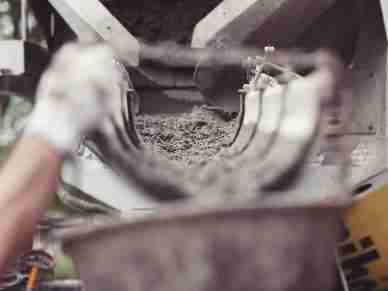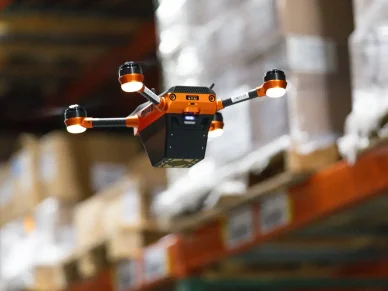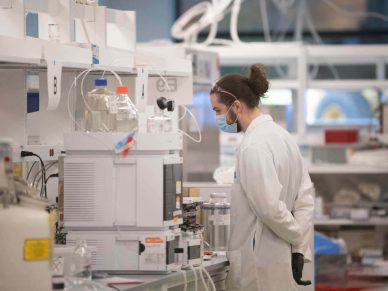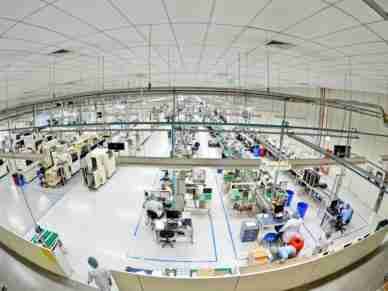View This Article in BOSS Magazine
A fresh take on last mile delivery is opening up safer, more efficient alternatives in the oilfield.
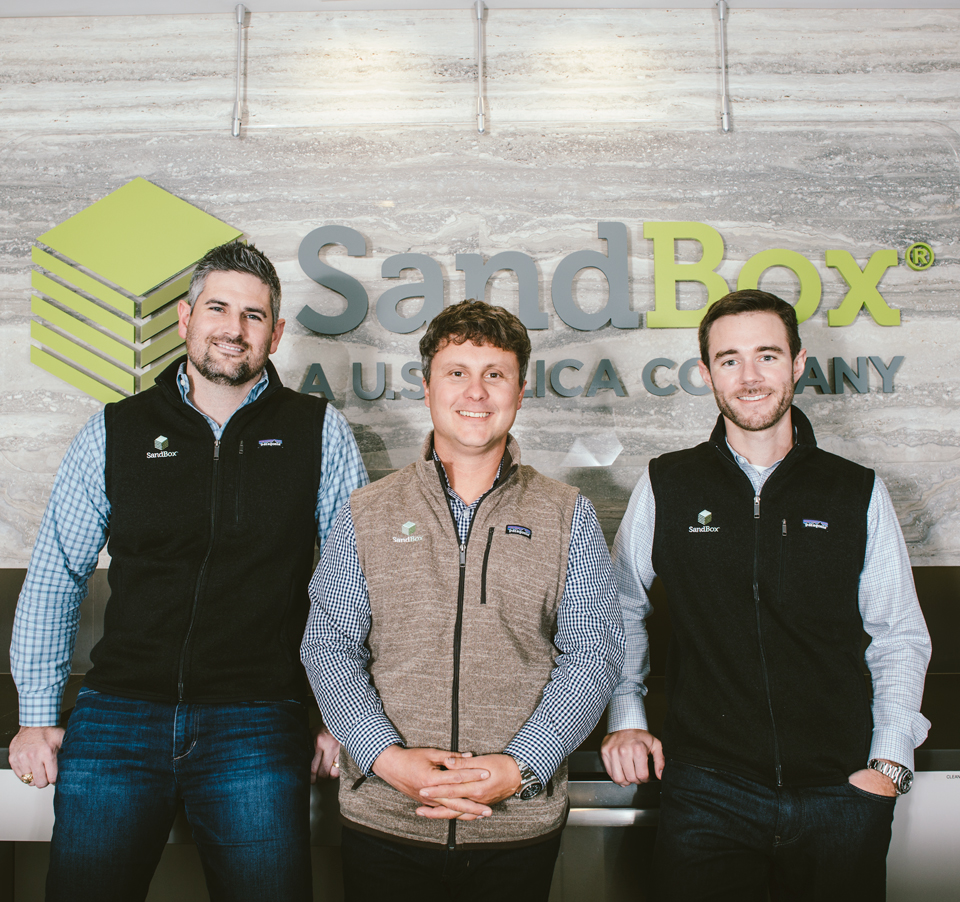 SandBox Logistics is revolutionizing last mile oilfield logistics, one box at a time. The Houston-based operation is outrunning their competition with a bold blend of ingenuity, a relentless drive to make working in the field safer and more efficient, and a fresh perspective on last mile delivery.
SandBox Logistics is revolutionizing last mile oilfield logistics, one box at a time. The Houston-based operation is outrunning their competition with a bold blend of ingenuity, a relentless drive to make working in the field safer and more efficient, and a fresh perspective on last mile delivery.
Based on a concept developed by father-son business duo John and Josh Oren in 2013, SandBox was envisioned as a better way to move frac sand using a container or a box. For the unfamiliar, sand and other like materials are used to prop open the cracks and fissures in hydro-fracked shale rock during the oil and gas completion and extraction process. As one can imagine, this takes a tremendous amount of material to work; traditionally, a convoy of trucks bring it to the wellsite, where drivers and workers offload the sand using the trucks pneumatic or air blown pumps. The trucks roll up, blow out sand into antiquated silos, and repeat until the frac job is completed.
Acquired by frac sand giant U.S. Silica in 2016 as a way to transport sand, the innovation quickly turned into an industry-leading last mile solution, serving all the major shale plays in the country. From the Marcellus to the Permian and beyond, SandBox is the top last mile oilfield logistics company, and they are on the move.
“SandBox was challenged with taking a startup concept into a very traditional industry and getting buy-in,” said U.S. Silica business unit President Daniel Miers. “The oil and gas service sector has a history of being a relationship-driven business, but now customers are much more sophisticated and are adopting new technologies that are more efficient and cost-effective. SandBox was something new that we knew worked very well, and once we got a shot with a new customer, they always wanted more. We wanted to put together a team that would keep the entrepreneurial spirit of SandBox but at the same time have a skill set that was able to integrate into a larger organization like U.S. Silica and get buy-in from the largest oil and gas production companies in the world and the most advanced service companies as well.”
SandBox is a team of fast movers who are ready to challenge the status quo. “It’s a fun place to work. We are figuring out new ways to use our equipment, we're actively working with our customers trying to figure out different verticals to enter into, and we're a lot more dynamic and open-minded than many other organizations in our industry,” SandBox COO Derek Ussery affirmed.
Aggressive About Innovation
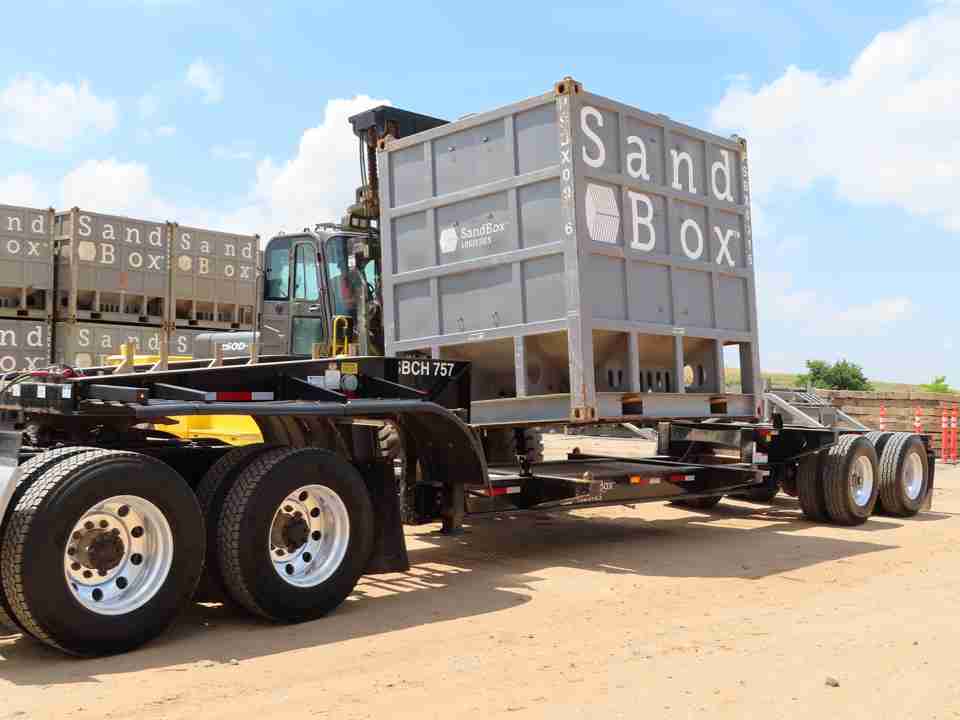 Blending the forward motion of a startup into any traditional industry is a tough challenge, but when executed well, it is a beautiful thing to be a part of. As Ussery put it, “We all are thinking about how we can continue to innovate and use technology, automate our equipment and process, and even now with the industry starting to shift to a more data-oriented world, start to provide our customers with the information they need to make better decisions with their business.”
Blending the forward motion of a startup into any traditional industry is a tough challenge, but when executed well, it is a beautiful thing to be a part of. As Ussery put it, “We all are thinking about how we can continue to innovate and use technology, automate our equipment and process, and even now with the industry starting to shift to a more data-oriented world, start to provide our customers with the information they need to make better decisions with their business.”
Business unit president Daniel Miers added, “We are taking a strong, simple solution and using technology and world-class standards to turn it into one of the top last mile logistics businesses in the world. SandBox has changed the game and the way frac sand is delivered to well sites. It’s much more efficient, safer, and there’s less pollution, less noise, it’s a true solution for a result focused customer base.”
In taking a fresh approach to proppant storage, handling, and well-site delivery, SandBox lowers costs, increases operational efficiency, and drastically reduces the health and safety impact of silica dust on any hydraulic fracturing job site.
Miers explained the traditional frac sand handling process this way: “One of the most common ways to move frac sand is with pneumatic trailers. You're blowing sand out of the trailer into frac sand silo when you get to the well site.” That process of emptying the trailer can take 40 to 45 minutes for each load of sand. “You’ll have a truck driver outside of the cab blowing sand, and there are people telling the trucks where to go, and it creates a significant issue with silica dust floating in the air, creating unacceptable exposure levels,” he continued.
“SandBox add value because our delivery device is also our well site storage device. When sand comes to the location in the box, you don’t have to dump or blow out a bunch of sand on location. You pick the box up with a forklift, take it off the trailer, and set it on the pad for storage or the sand delivery device to be pumped downhole.” Storing sand in individual containers eliminates the risk of contamination that silos face and allows the customer to share material between well sites.
Depending on the customer needs, SandBox uses either a simple conveyor belt system or a gravity-fed stand to deliver the material. Conveyors are typically used for high volume jobs whilie stands are utilized on average or lower volume jobs. “You're drastically reducing the exposure on location compared to the way it’s traditionally done.”
In addition to lowering silica dust exposure, you drastically reduce or eliminate truck demurrage time as well. “Traditionally, a pneumatic truck operator has to get out of the truck at the well site and blow the sand into sand storage equipment. For belly dump trucks, they also have a significant offload time when they dump the sand from the bottom of the trailer onto a conveyor, which takes the sand to its storage device. With SandBox we unload in less than 5 minutes, and you can take the box off and stack it. We only have one truck on location at a time, whereas with other solutions they could have multiple trucks on location that are also backing up. Having a large truck and trailer going in reverse is a serious safety hazard in our industry.”
“From a flexibility standpoint, one of our biggest advantages is that the boxes are like Legos. We can stack them, we can stage them, and all parts of our system are interchangeable and redundant, this comes in handy when we are working on remote customer locations. Each well presents new challenges. Sometimes it’s the well pad size and location size, sometimes it’s the velocity of the well, whatever it is we can scale easily and meet that wells demand where other solutions don’t have the room or flexibility needed.”
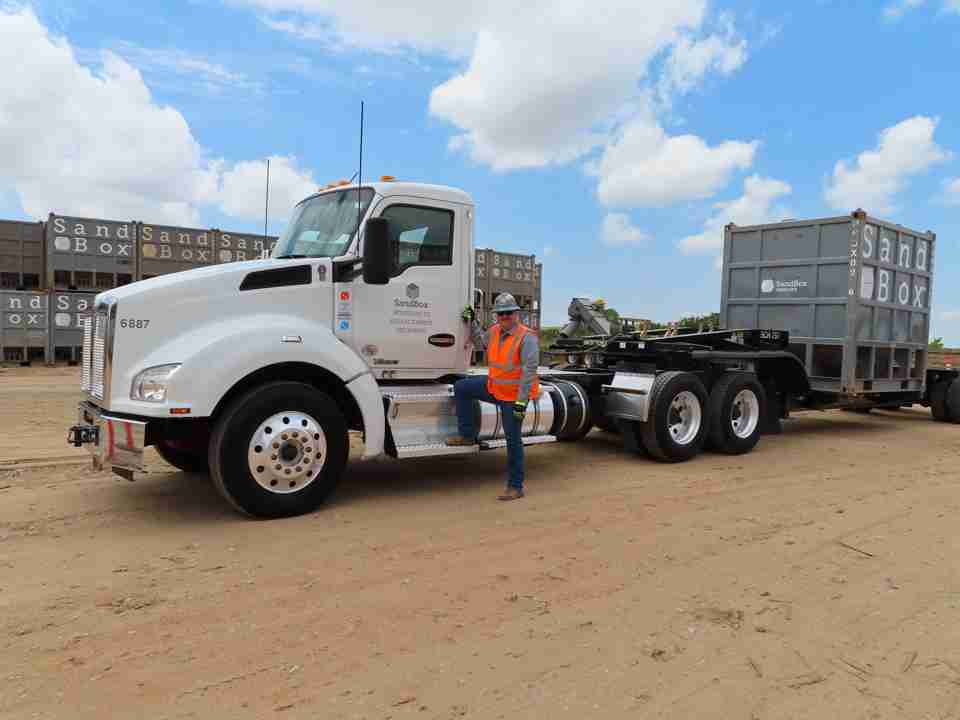 SandBox can put from tens to hundreds of boxes on each location. “You can move those, separate them, and we can create a mobile transload, which is an off-site storage location. If your pad size is small, or you have multiple wells in the same vicinity, we can set up boxes down the road and transport them in as necessary.”
SandBox can put from tens to hundreds of boxes on each location. “You can move those, separate them, and we can create a mobile transload, which is an off-site storage location. If your pad size is small, or you have multiple wells in the same vicinity, we can set up boxes down the road and transport them in as necessary.”
Some well sites put up large silos that need continual cycles of trucks to fill. “At the pace of fracing these days, to load sand fast enough, you would have to back up quite a few trucks at one time,” Miers added. SandBox is flexible enough to allow for pre-staging, dramatically reducing time on site.
“One of the biggest expenses to an oil and gas operator is the frac pumps. There could be over 20 massive frac pumps on a large job, and one of the biggest unnecessary expenses for our customers is downtime or nonproductive time. If they have to pay for those frac pumps on location and they're not pumping, it's very expensive. Our advantage is being more flexible, and our quick time delivery versus a pneumatic that takes 40 to 45 minutes to offload takes us just 5. We can deliver material to that well site much more quickly and efficiently,” Ussery pointed out.
Competing solutions, Ussery noted, take up to triple the time and workers than does the SandBox. “Our drivers, who get paid by the load, can deliver up to two to three times as many loads per day as operators driving pneumatics for traditional systems. Our drivers and third-party carrier partners enjoy working with us.”
Miers concurred. “Our philosophy on carrier partners is to treat them fairly. We're a commodity-driven business, so market price changes. We have the ability to flex up and down with the market and we do both on a regular basis.” In addition, because drivers never exit the cab of the tractor, it eliminates the need for cumbersome record keeping of well site safety certifications. “All of those things make us an attractive option for third-party carrier partners or for our own drivers because we employ a large number of drivers. Keeping them safe, keeping them busy, and paying fair are some of our competitive advantages,” he added.
SandBox has redesigned the hauler chassis to improve safety and increase load tolerance compared to traditional flatbed carriers. “Our chassis is specifically designed to carry our box,” Ussery explained. “It has a lower center of gravity, it's a drop-down trailer that specifically helps hold our box in. We've got latching mechanisms that lock the box to the chassis and allows for safe transport. That helps sets us apart.”
The company is currently working on further automating the SandBox system, prepping on-location remote control systems to keep operators further away from the active site. Their next planned step, which they are working on with Lime Instruments, is to fully automate the cradle and stand system to become virtually self-managing.
Transport companies like SandBox are guided by weight restrictions. Ussery explained, “Every last mile company is constrained by the same amount of weight they haul down the road. We've been pioneers in the development of lightweight chassis, lightweight boxes, and lightweight and strong assets that give us the ability to maximize volumes delievered to our customers. A lot of engineering and design has gone into doing that. The drop deck design helps us prevent rollovers and gives us the ability to haul taller boxes that can hold more product. We now have boxes out there that can hold 50,000 pounds of sand or 25 tons in a load.” Alex Lavergne, CFO, commented “The quick offloading abilities of our solution combined with improved box payloads allow us to service the highest intensity fracs being performed in the US”
In addition to evolving their equipment to be more productive, optimizing frac sand delivery to their customers, an experienced team drives innovation at SandBox. “We are using artificial intelligence to make better dispatching decisions, gaining efficiencies with our logistics platform,” Ussery noted. “We look forward to the evolution of our industry and our expansion outside of the sand space.”
“We are over 25 percent of the US market from the last mile perspective,” Miers confirmed. “We are going to continue to grow into 2020 with elite, high-profile customers, and we're looking at other lines of business that will help us better serve our customers and shareholders. We are currently developing a similar delivery system for another commodity, radically changing how it is delivered.”
The operations support team, led by Chad Trueheart, have their eye on niche markets that they feel will be game-changers for many of the industry’s operators.
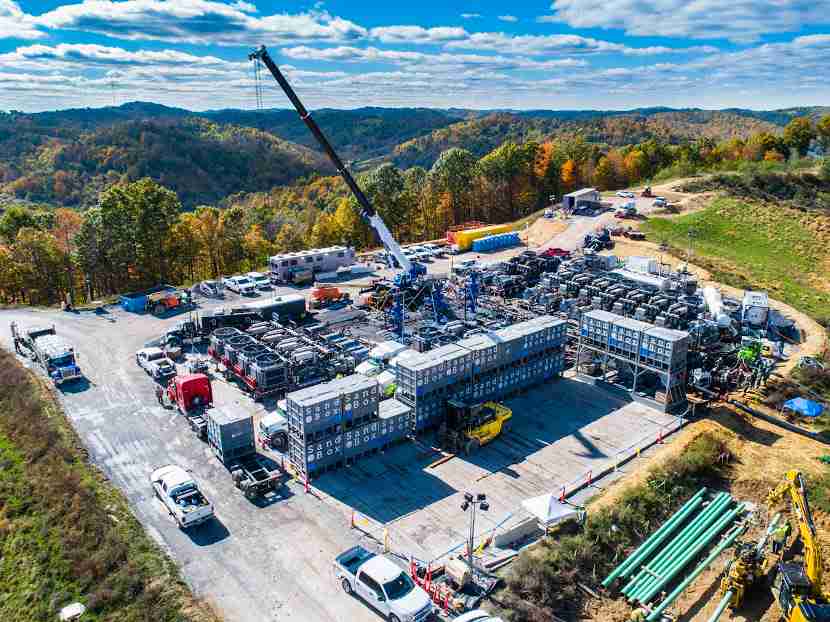 “We are very excited about the evolution of our company,” Miers said. “The teams' ideas are world-class and come from decades of experience, solving our customer partners' problems.”
“We are very excited about the evolution of our company,” Miers said. “The teams' ideas are world-class and come from decades of experience, solving our customer partners' problems.”
SandBox is on the hunt for large customer partners to help them keep making a difference in the O&G industry and beyond. In 2019, SandBox landed on the Houston Chronicle’s lauded top 100 employers list, which is no surprise given the company’s attention to building an engaged workforce with a desire to make not just the workplace safer, but also supporting the communities in which they work.
From distributing fans to cool folks down during a blistering South Texas summer to donating time to Habitat for Humanity and performing many other charitable works, SandBox carries the spirit of caring, environmental safety, and timely aid from the worksite to the neighborhood. There’s no doubt that great partners will be lining up to play in one of the most innovative SandBoxes there is.
SandBox provides an innovative new service for the storage, handling, and well-site delivery of proppant used in the hydraulic fracturing process. Through its proprietary sand delivery process and containerization equipment, SandBox increases operational efficiency by eliminating many of the logistics problems and transportation bottlenecks that are common in the industry. Our system also substantially reduces silica dust and noise pollution, improving both environmental conditions and safety at frac operations.
Corporate Office
SandBox Logistics
Fulbright Tower
1301 McKinney St
Suite 2400, Houston, TX 77010
Telephone (281) 949-8400
Website sandboxlogistics.com
